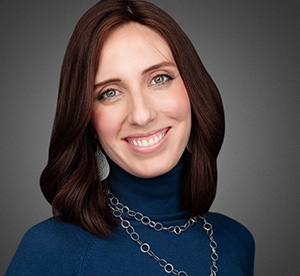Outside Chance: Chapter 27

My breath caught in my throat. Every time I let myself picture that awful moment, I felt first-trimester nausea

I pulled the bottle of La Croix out of the freezer, felt it, put it back in. Would it be cold by the time Yehudis came? Then I looked at the box of pastries on the counter that I’d bought early this morning. Yehudis wouldn’t touch them, I knew that. Overkill, Chana. She probably wouldn’t touch the cut fruit either.
This is pathetic. I rolled my eyes to myself, then looked around the kitchen. There were seforim, old homework sheets, two cereal boxes, and my empty coffee mug on the table. Yehudis wouldn’t see this room. Next.
In the dining room, I sat at the seat Yehudis would presumably sit in and surveyed the room and living room next to it. Couch pillows were piled in one corner, the boys were probably making a fort or something. Fix that. The hall closet had some Amazing Savings bags poking out. I got up, pushed them in, and closed the door.
Why was I doing this? Cleaning up for company was not my thing. And it’s not like the house was messy, just normal lived-in. This meeting with Yehudis was putting me in a weird place.
Avrumi and I had spoken about this meeting, he wanted me to smooth things over with Yehudis. He didn’t totally get the other women’s gripes or my ambivalence.
I threw the pillows back on the couch willy nilly. This whole situation was ridiculous. I was totally happy to let Yehudis reign. I swept my hand under the couch and came up with two old magazines and some dust. Enough. The living room looked fine.
I looked at the clock. Five more minutes. I felt the unfamiliar sensation of my throat tightening and my muscles clenching. I went to the kitchen to bring out the drinks and food. I touched the La Croix bottle, good, it was cold.
There was so much that needed to be sorted out, for Avrumi, for the women of the shul. I had never wanted to be in this position in the first place, yet now I was the one leading the fixing.
Oh, oh, oh. Thoughts started to crystalize in my head, just as the doorbell rang.
Yehudis stood there, looking perfect as ever, a slight smile on her face. Was it a real one, or another show?
“Come in, come in,” I said and gestured to the dining room. I think my voice was a little too loud. Once seated, we looked at each other. I was hosting, that meant I was supposed to go first, right?
“Yehudis,” I faltered. “I’m not really good at this, and I’m not sure where to start.”
She nodded, listening. I thought having the meeting on my home turf would make it easier for me, but it just increased the pressure to speak.
“I want to talk about the past, the present, and future. But not in that order.”
A teeny smirk flitted across Yehudis’s face, like she knew I couldn’t keep to the conventional.
“Presently, I want to apologize about the conversation you overhead on Shabbos. That was not the time or place or way for people to raise issues, and as the rebbetzin, I should have been a better leader.”
“Yes, you could have been. I don’t recall a time where I felt more humiliated, attacked, and misunderstood in my life. And to see the rebbetzin in the thick of it…”
My breath caught in my throat. Every time I let myself picture that awful moment, I felt first-trimester nausea.
“I’m so sorry, Yehudis,” I reiterated. “Can we go back there a moment?”
Yehudis looked at me sharply.
“The women were talking about their unmet expectations, but tell me about yours, for the shul, for the community.” I paused, then added, “For me?”
Yehudis looked away. It was a hard question, I knew.
“This shul was my idea in the first place. I suggested the original minyan members to my husband, I bought the first paroches, and I placed the first order for seforim. Everything had my stamp on it.”
Yehudis bit her lip. “When it came to the point that we needed a real rav, your husband was everything my husband was looking for.”
“And me?” I asked.
Yehudis gave an almost imperceptible smile. “Not what I imagined, but you were really nice and genuine. I figured I could mold you.”
“And you did — ish,” I said, and we both gave a small laugh.
“I guess so, you’re an excellent speaker, and you know how to present when you choose to, but honestly, you were not what I’d envisioned.”
“But what were the women hoping for?”
Yehudis gave a small shrug. “I don’t really know. As you heard over Shabbos, the other women don’t feel involved. They never really expressed what they wanted, even though we did send out surveys and have meetings. I thought the lack of opinions meant people agreed with my vision, not that they felt disenfranchised.”
“No one said anything?” I asked. That seemed a little difficult to believe.
Yehudis waved a dismissive hand. “There was a little feedback, but nothing clear, just a mishmash of competing comments, with no coherent opposition, so I just went with my vision.”
Made sense. She’s right, most people, myself included, don’t know what we want.
“I hear. I look at myself, and I’m not sure how committed I was to being a rebbetzin in the first place. So I just followed you, until I found myself a bit, and that’s when we started to clash.”
“Clash.” Yehudis echoed my words. “With me, yes, but not with the other women.”
I nodded.
Yehudis cleared her throat. “I want to thank you, Chana, for your apologies, and for your willingness to work this through.” She shifted in her seat. “I’ve been doing a lot of thinking since Shabbos. That conversation cut deep.”
I averted my eyes for a moment. It hurt to hear her say that. I’d hoped she was somehow too cool to care.
“I’ve come to recognize, though, that like a parent gives a child a foundation and then gives the child space to be himself, the time has come for the shul to find its own way. I’ll always be there as a guide, but I’m stepping back a bit in my involvement.”
I nodded. That’s exactly what being a parent was about.
“Wow,” I said. “That’s really, really, I don’t want to sound patronizing, but really mature of you.”
Yehudis broke into a smile. This one looked real.
“I know, and it’s not going to be easy to let go.” She took a deep breath and composed herself. “So let’s figure out the future.”
“Can you excuse me a moment?” I escaped to the kitchen, to think for a minute. Really I needed to verbalize my thoughts, talk to someone, that’s how my brain works, but there wasn’t time for that.
I grasped the top of a chair, leaning into it. I’d never chosen to be a rebbetzin, I was just following Avrumi. So when Yehudis told me what she wanted, I went along with it, for Avrumi. Or I pretended to agree, then did my own thing, and look where that got me.
I tapped the chair. If we were to discuss the future, I had to choose it, to know what kind of rebbetzin I wanted to be… to know if I wanted to be a rebbetzin.
I looked around the kitchen of my new home. I liked it. Susan from the library came to mind, then Dahlia, and Yehudis’s niece, what was her name again… so many faces swam in front of my eyes.
I’d been here for a short time, but met — and dare I say reached — so many women? I loved the women, I loved speaking. The shul was beautiful. So what if I had to had to behave sometimes.
I walked back to the living room, and offered Yehudis my hand. Yehudis looked at me strangely, but she took my hand.
“Let’s start over.” I smiled brightly at her. “Hi, I’m Rebbetzin Chana Schwartzberg.”
to be continued…
(Originally featured in Family First, Issue 714)
Oops! We could not locate your form.


